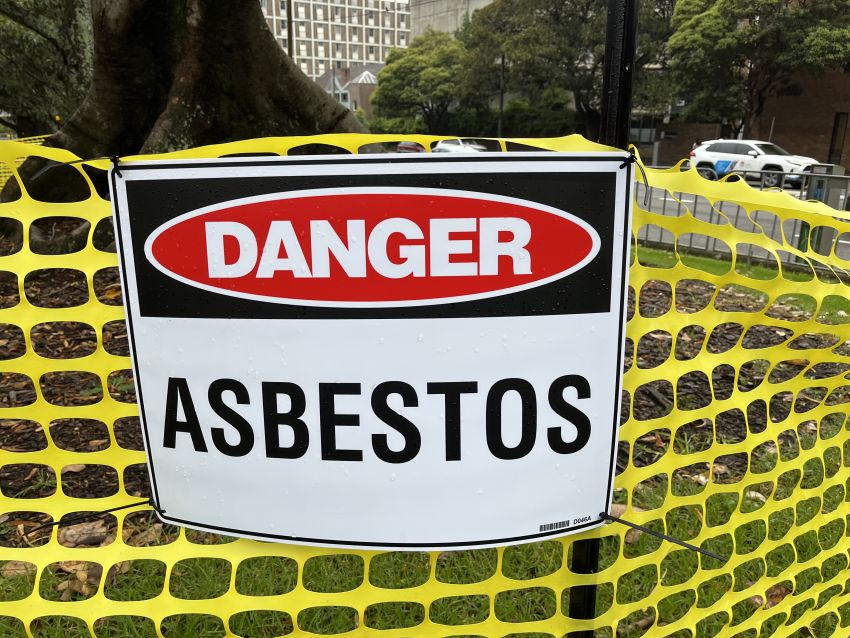
Families living near Victoria Park, right next to the University of Sydney and the busy Broadway shopping centre, can no longer bring their kids to play.
That is because it is now dotted with fenced off islands, with yellow and orange webbing and signs warning that asbestos has been found in mulch laid around it.
However, the problem is not confined to this inner-city park.
Numerous parks, a hospital, supermarket and several schools have been found to be similarly affected, and some have been forced to close for weeks while the asbestos is removed.
The number of asbestos-polluted sites around greater Sydney is growing by the day.
Asbestos is a deadly substance. I worked in a James Hardie asbestos factory when I was young. Many of my co-workers from that time developed asbestosis, or lung cancer, and some suffered early and miserable deaths.
A scan of my lungs taken a few years’ ago revealed areas of thickened tissue in the outer layer of the lung lining, the parietal pleura.
Pleural plaques indicate asbestos exposure. They develop 10 to 30 years after the initial asbestos exposure, are benign and usually do not require treatment: I am one of the lucky ones.
This latest public discussion of asbestos pollution in public places in greater Sydney was sparked a month ago by the discovery of asbestos in a children’s playground built in the middle of the giant privately-owned tollway road interchange at Rozelle.
This playground was a token attempt to buy some public acceptance of the multi-billion dollar publicly subsidised WestConnex network, that has made this city one of the most road-tolled in the world.
It is a criminally irresponsible project that has done the opposite of its official purpose: to “future-proof” the city’s transport system.
Local residents — some of whom had put up a many-year-long resistance to WestConnex — had a rude shock when the interchange opened earlier this year. There was traffic chaos, roads jammed in peak hour and people struggling to get to work or to get their kids to school. Months later, the traffic chaos continues.
Then came salt in the wound, as asbestos was found shortly after the new playground was opened with great fanfare. It had to be closed down.
This was not the first asbestos scandal associated with WestConnex. There were allegations in 2016 that asbestos-polluted road base had been supplied by a private contractor to WestConnex, as well as to private homes.
At the heart of the problem is a political and economic disease that has destroyed lives, communities and the environment over the last few decades.
It is one of the ugly fruits of the right-wing, neoliberal “reform” that has corrupted everything in a tsunami of privatisation and deregulation.
Balmain Greens MP Kobi Shetty described the Rozelle Parkland asbestos scandal as just the “the tip of the iceberg”.
The Guardian uncovered documents proving that the NSW Environmental Protection Authority (EPA) has known about the contamination risk of mulch and filling supplied by for-profit corporate recycling companies for more than a decade, and has so far failed to act.
The EPA had warned that a business-as-usual approach would mean there was a risk that up to 658,000 tonnes of “non-compliant material” a year could be applied to “sensitive land”, including residential sites, childcare facilities, schools and parks.
But the EPA abandoned a proposal to tighten the regulations in 2022 after “pushback from industry and negative media coverage”, The Guardian reported on January 29. Corporate profitability trumped public health and safety.
Even as the number of affected sites grows, one company alleged to be the source of asbestos-contaminated material is taking legal action to prevent the EPA from stopping it from distributing even more of the suspect material.
A former compliance officer with the EPA has alleged that the problem was “destined to happen” because of more than a decade of deregulation.
The NSW Labor government says it is conducting an urgent investigation into the matter.